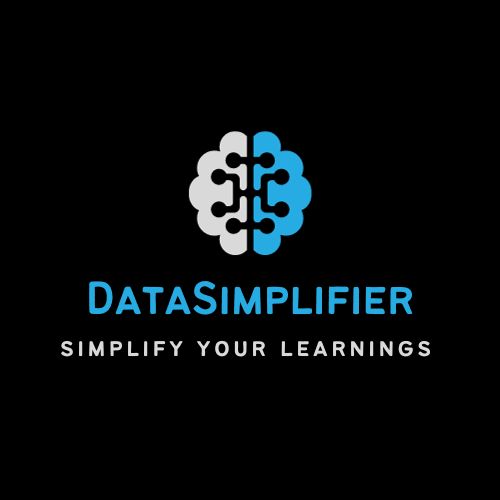Introduction
Data analytics soon was the new must-haves for nearly every industry which opened doors for impactful decision making, uncovering subtle and hidden patterns, thus propelling to a potential future where data was envisioned as an answer to information-based life. It happens to be a very promising arena for Indian students as well as working professionals in such an environment. In a nut, with new technologies and approaches, data analytics surely enhances and transforms such realms including healthcare, business and finances, thus being mandatory expertise for any job interview or interested individual to boost career professional.

This article will take you through everything you need to know about the future of data analytics, especially its integration with artificial intelligence (AI). Now that AI is revolutionizing analytics by making it faster, smarter, and more accurate, this is just the right time to dig deeper into the world of developments. Whether you aim to enter the world of data analytics or just wish to keep up with the latest trends, this is your ultimate guide.
By the end of this article, you will know the trend, industry, and various career opportunities about data analytics. Let us dive and see how the future may look like through data analytics, powered by AI for Indian students and professionals and open doors for exciting avenues.
I. The Current State of Data Analytics
Today, data analytics plays the frontline role of aiding any company or organization to take the right decision irrespective of its size. Understanding customer preferences to forecasting the trends in the near future, data analytics has played a backboned role in strategic planning. And, as the volumes are mounting exponentially, so have been the demands for experts managing and analyzing the data.
How AI Improves Data Analytics: From just the descriptive analysis of what happened, AI has helped data analytics become predictive-analytic (what might happen), and prescriptive analysis-that is, telling what to do. This transition is the most important because organizations can look forward to seeing changes come their way and optimize how they operate in order to personalize customer experience. As AI brings more ML models and automated processes into use, its role in analytics is growing at a rocket speed.
II. Future of Data Analytics in AI
Predictive and Prescriptive Analytics: AI empowers the ability to predict future trends and give recommendations to complete an action. As predictive analytics might use past trends for further forecasting of events, prescriptive analytics provides a suggested course of action that redefines decision-making. Next, these would prove to be extremely valuable tools in fields such as finance and healthcare.
AI-Driven Automation: The automation of data processing tasks using AI will allow professionals to focus more on high-level strategy and decision-making instead of manually handling the data. Businesses will embrace AI-powered analytics platforms for sales predictions, employee management, and other similar tasks with the help of automation.

Explainable AI: This is relatively a new topic in AI, known as Explainable AI, and it aims to make an AI model explainable. For data analytics professionals, this will mean more transparence and interpretive insights, especially in sensitive sectors like healthcare, in which decisions have to go through rigorous checks.
Sector-Specific Applications of Data Analytics
Future of Data Analytics in Healthcare
Predictive Health Monitoring: Data analytics will enable proactive healthcare. The patient data will be analyzed using predictive algorithms to determine diseases early and take preventive measures. AI-powered devices and wearables will track health metrics in real time, changing how healthcare is managed and personalized.
Drug Discovery and Development: Analytics powered by AI will significantly speed up drug discovery and testing, thereby allowing companies to introduce new drugs into the market much more quickly. An AI model can learn promising drug candidates much faster than traditional methods from vast volumes of biomedical data.
Telemedicine and Patient Care
Healthcare analytics will increasingly involve better platforms for enhanced telemedicine services. For instance, information-driven inferences will offer remote supervision and personalized care schemes to anyone, anywhere-from rural populations to underrepresented groups.
Future of Data Analytics Business
Personalized Customer Experience: There is a move towards hyper-personalization in the business world. Using analytics on data, companies are now able to offer hyper-personalized customer experience by understanding and addressing an individual’s specific preferences. It is one of the greatest applications of e-commerce because personalized recommendation helps raise sales.
Supply Chain Analytics: Data analytics helps make the supply chain optimal for demand prediction, inventory management, and on-time arrival. AI models will predict disturbances ahead of time so the businesses can proactively approach issues rather than reacting.
Financial Forecasting and Risk Management: Data analytics is considered to be used by companies for making financial decisions, risk assessment, and in order to gain an opportunity in the market. AI and ML help the organizations get better predictions about market trends, investment outcomes, potential risks, and make it more agile and adaptable toward the changes in the market.
Future of Data Analytics in Accounting
Automated Compliance: AI and data analytics facilitate the automation of compliance accounting. Considering the fast-paced changes in regulatory environments, it ensures that all records will be in accordance with the most updated standards. It minimizes the possibility of costly errors.
Fraud Detection: AI algorithms can trace the patterns in transactions and identify anomalies in transactions and prevent fraud. This is an important concern for accounting and finance professionals who need to ensure integrity in financial records.

Cost Analysis and Efficiency: Predictive models will enable organizations to understand their spending patterns, optimize budgets, and reduce operational costs. This is important in industries where there are very tight financial constraints or the market demands fluctuate.
IV. Future of Data Analytics in India
As the digital technology is developing very fast, Indians have experienced the highest levels of digital adoption in each sector globally, so the demand for skills is high for professionals such as data analytics professionals who convert raw data into something meaningful for an organization’s management to make better and effective decisions.
The Indian startup ecosystem has been doing very well due to the initiatives of government programs such as Digital India, encouraging people to carry out business through digital channels. Given this background, analytics jobs are going to be the hub for the country.
Adoption Across the Industries: Industries, be it from banking to healthcare or even e-commerce and telecom sectors, are embracing data analytics. Companies will see improved services and operational efficiency because of insights that have the potential to improve performance, making it an on-trend trend.
V. Skills for a Data Analyst’s Successful Career
Programming Skills: Basic Programming is about understanding languages such as Python, R, or SQL. This kind of understanding will come in handy during data manipulation, statistical analysis, and ML models interaction.
Machine Learning and AI: Analytics professionals are high on the list for anyone who has expertise in machine learning, deep learning, and neural networks as it allows data professionals to develop models that can automate data processing and help them find patterns.
Data Visualization and Communication: Tools like Tableau, Power BI, or Google Data Studio are of significant value in presenting the data insights in an easy and impactful manner for the decision-makers.
Business and Domain Knowledge: A professional needs to know more about one particular type of industry such as health care or finance. Industry expertise will place data insights within context; therefore, this will make them relevant and actionable.
VI. Career Opportunities for Data Analytics
Data Scientist: Development of models to predict anything using data forms the nucleus of work where data engineering overlaps with data analysis.
Data Engineer: Data engineering has a lot to do with preparation of the data infrastructure. Data handling for very large datasets also forms an essential part, along with ensuring optimization in the data flow.
Business Analyst: Using data to better help businesses make the most informed decisions for business and the bottom line.
Healthcare Data Analyst: It involves patient and health care data to ensure efficient and optimal health care and clinical outcomes.
AI Specialist: Works in AI technique-based data analytics that would result in the enhancement of all processes from automation to predictive modeling.
VII. Challenges in the Future of Data Analytics
Data Privacy and Compliance: Data privacy is fast becoming a serious issue. Professionals should be aware of data protection laws such as GDPR. Use of ethical practices in handling the data and maintaining the privacy cannot be overstated.
Ethics and Bias in AI: The challenge is to prevent bias in AI algorithms. This data professional has to face this challenge. AI, therefore, will be critical in ensuring that the data-driven decisions are fair and unbiased.

Scalability and Infrastructure: As the data volumes are increased, advanced storage solutions and cloud computing resources would be required for big data processing. The need for professionals in cloud platforms and data engineering would grow significantly.
Conclusion
Data analytics has a tremendous potential in the future, given that AI is continuing to change the way we deal with data and interpret it. For Indian students and professionals, it’s a very good time to build their career in data analytics considering the high demand and growing fast. Data analytics is redefining what is possible-from transforming patient care in healthcare to making financial forecasting feasible in business. It will continue driving innovation and decision-making processes as more and more industries embrace digital transformation.
Keep track of this competitive space by joining our Telegram group, where we regularly post notifications about job openings, career advice, and peeks behind the scenes in the world of data analytics. You’ve made it this far? That takes commitment! Thank you for that. Please do leave a comment with your Telegram handle.
Share the post with your friends

1 thought on “The Ultimate Guide to the Future of Data Analytics: Trends, Opportunities & Career Insights”